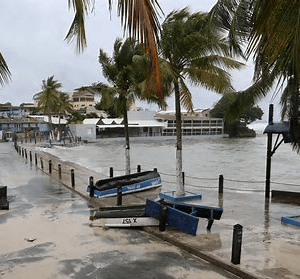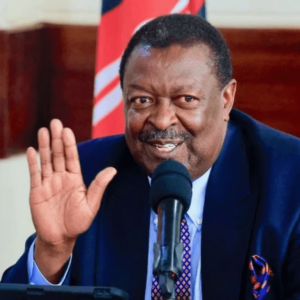On the eve of the probable entry announced by certain media of the first Kenyan elements of the multinational security force in Haiti, there is a big void at the level of the body which should, in principle, come to supervise at the national level, the arrangements relating to this international assistance.
Even Prime Minister Garry Conille, President of the CSPN (Higher Council of the National Police), could not confirm this information and even less give details relating to their number, their deployment, etc.
Indeed, following information published in the Kenyan press on Sunday on the possible arrival of a contingent of Kenyan police in Haiti on Tuesday June 25, 2024, Rezo Nòdwès directly contacted the Prime Minister of the Transitional Government of Haiti, Dr. Garry Conille, for more information.
During this brief interview, Mr. Conille stated that he was not able to “confirm or deny” this information at this stage.
However, the April 3 Agreement provides for the establishment of a National Security Council (CNS) made up of national experts, professionals from the Diaspora and other personalities to provide a response to the different aspects of the security crisis. in Haiti.
A CNS which must define the modalities of cooperation with international partnerships with a view to improving security, in particular technical assistance to the national security forces and the judicial system with a view to resolving in a sustainable manner the social scourges of the insecurity, the armed city, trafficking in people, drugs, weapons, ammunition, and contraband.
It will also have to define and supervise the arrangements relating to international security assistance (UNSC Resolution 2699 and others) in consultation with local authorities, security actors, governance and civil society, as well as national and international experts.
The creation of the CNS is the second point of the roadmap for the Political Transition in Haiti provided for in article 45 of the April 3 Agreement. The first point being the Designation (Establishment) of a government of rescue and national unity comprising decentralized authorities and autonomous directorates.
This is what the role and responsibilities of a National Security Council (CNS) could be within the framework of international cooperation and in this country weakened by armed gangs of:
1. **Coordination of security actions**: The National Security Council (CNS) could ensure coordination between the different national and international agencies involved in security, such as the police, the army, the intelligence services and the International organisations.
2. **Development of national security strategies**: It would be responsible for developing security strategies and policies adapted to the specific situation of the country, particularly in the face of the threat of armed criminal gangs. This includes long-term planning and the implementation of preventive and repressive measures.
3. **Crisis and emergency management**: In the event of a crisis due to organized criminal activities, the CNS plays a crucial role in managing these crises, by mobilizing the necessary resources and coordinating emergency responses. emergency.
4. **International collaboration**: As part of international cooperation, the CNS will facilitate the exchange of information, joint training of security forces and operational cooperation with other countries and international organizations to fight against transnational organized crime.
5. **Strengthening national capacities**: The CNS works to strengthen the capacities of national security institutions in terms of training, equipping and developing the skills necessary to face the challenges posed by armed criminal gangs.
6. **Monitoring and evaluation**: It would ensure regular monitoring of the security situation, evaluate the effectiveness of the strategies put in place and adjust security policies according to the evolution of threats.
7. **Promotion of governance and the rule of law**: Alongside its operational functions, the CNS would contribute to promoting good governance, the rule of law and respect for human rights in the fight against organized crime, in order to preserve the long-term stability and security of the country.
These points highlight the importance of the CNS as a central body in managing the complex security challenges faced by Haiti, a country facing armed criminal gangs, with an emphasis on international cooperation and coordination of national efforts.
Similar articles






